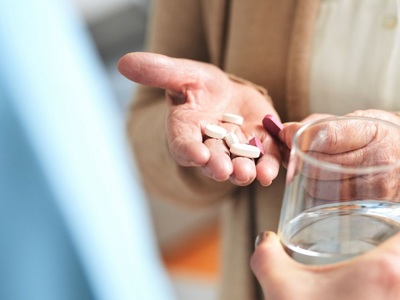
UK product regulatory system response to report on Sodium Valproate taken in pregnancy
Bozena Michalowska and Zahra Nanji give an update on Leigh Day investigations into how the UK product regulatory system has responded to Sodium Valproate.
Posted on 15 March 2021
Bozena Michalowska and Zahra Nanji give an update on Leigh Day investigations into how the UK product regulatory system has responded to Sodium Valproate, an anti-epileptic drug which can cause physical malformations, autism and developmental delay in many children when it is taken by their mothers during pregnancy.
Independent Medicines and Medical Devices Safety (IMMDS) Review
The report of the Independent Medicines and Medical Devices Safety (IMMDS) Review, titled First Do No Harm was published in July 2020. The review was prompted by years of patient-led campaigns to bring awareness of systemic failings in respect of Sodium Valproate (alongside Hormone Pregnancy Tests and Pelvic Mesh Implants) and to make recommendations for the future.
Leigh Day worked with patients and stakeholders to make submissions to the review, so that individual patient experience could be considered. The report took evidence from patient testimonies and made nine recommendations for a safer healthcare system. The recommendations which Sodium Valproate groups are most keen to see fulfilled as soon as possible are:
- The appointment of a Patient Safety Commissioner;
- The implementation of a task force to oversee progress;
- An independent Redress Agency for those harmed by medicines and medical devices;
- A cost-of-care scheme to meet the costs of additional needs caused by avoidable harm;
- Networks of specialist centres to provide comprehensive treatment and act as a ‘one-stop shop’ to signpost and refer patients to other services.
Leigh Day supports the full implementation of the IMMDS recommendations and urges Parliament to carry out the recommendations.
Leigh Day wrote to Matt Hancock on 17 July 2020, Secretary of State for Health and Social Care, to ask that he give these matters his urgent attention.
Alongside patient groups, Leigh Day has lobbied Members of Parliament to deliver the recommendations through legislation via the Medicines and Medical Devices Bill which would provide the Government with new delegated powers to amend the UK’s regulatory framework for medical devices and medicines.
Medicines and Medical Devices Bill 2019-2021
The Medicines and Medical Devices Bill has moved through the House of Lords, where Commons amendments were accepted on 2 February 2021. The Bill awaits Royal Assent before it becomes law. Various peers have made amendments to the Bill to reflect the recommendations made in the IMMDs Review.
We are pleased that the following amendments to the Bill have been moved, namely:
- The Secretary of State must, before the end of the relevant period, publish a report on the operation of medicines and medical devices legislation.
- The establishment of an Independent Patient Safety Commissioner to promote and improve patient safety, taking reasonable steps to involve patients in the discharge of the Commissioner’s core duties.
However, there remain some important recommendations made by Sodium Valproate groups and the IMMDS Review that have not been moved in the Bill and await further clarification, as below:
- A redress schemes for those avoidably harmed by (1) Sodium Valproate, (2) pelvic mesh and (3) hormone pregnancy tests. This recommendation will not be become law under the Bill but remains under consideration by the Government. Leigh Day continues to advocate for a robust redress scheme to meet the cost of providing additional care and support to those who have experienced avoidable harm and are eligible to claim.
- The Government has no current plans to establish a wider redress agency. In a written statement to Parliament, the Minister for Patient Safety – Nadine Dorries MP, writes “the Government and industry have previously established redress schemes without the need for an additional agency.” On 2 March 2020, in response to a question in the House of Lords, Lord Bethell responded: “A redress scheme is not necessarily the correct solution to this problem. We are considering it extremely carefully, and when we publish our overall response to the Cumberlege Review we will include our considered response to the redress suggestion.” Leigh Day considers that redress for those avoidably harmed by Sodium Valproate must be implemented within a prompt timeframe, given patients and families have already waited not just several years, but decades for redress.
- The Government has no plans to establish an independent taskforce to implement the IMMDS report’s recommendations. However, Nadine Dorries MP’s written statement provides that “a cross-system working group has already been set up, meeting regularly, to develop the government’s detailed response to the report”. Additionally, the government are establishing a “Patient Reference Group” to ensure patient voices are heard as the Government move forward towards a full response to the report. While we welcome these steps, in the absence of an independent taskforce, it remains to be seen if these measures will adequately implement the IMMDS review recommendations and ensure prompt action is taken.
Further Action Taken
The Government plans to issue a full response to the IMMDS review during 2021. However, Nadine Dorries MP’s written statement to Parliament outlines some promising steps taken by the Government in the interim. This includes the establishment of a Valproate Safety Implementation Group to reduce harm and improve patient safety for women for whom there is no alternative medication. In addition, in January 2021, the MHRA published conclusions of a safety review into anti-epileptic drugs to help clinicians identify safer alternatives to Valproate for the treatment of epilepsy in women who may become pregnant.
Conclusions
The testimonies and tireless efforts of campaign groups have led to promising changes to the UK healthcare and regulatory system. However, Leigh Day echoes the ongoing concerns of patients who have suffered avoidable physical and neuro-developmental harm.
We support the IMMDS recommendation that the state and manufacturers have an ethical responsibility to provide ex gratia payments to support patients with regard to travel to medical appointments, respite breaks or emergency payments where a parent has had to stop working to cover care at the very minimum, but this does not in any way adequately address the families’ needs and concerns.
Leigh Day will continue to observe if the cross-system working group and patient reference group will implement the necessary recommendations. In addition, we continue to press for the Government to appropriately consider a timely and robust redress scheme. On behalf of those affected, the recommendations made in the IMMDS Review must be implemented with a sense of urgency and meet the needs of patients who have suffered avoidable harm from Sodium Valproate.
Meet the legal team
Find out more

Cumberlege Review: Sodium Valproate organisations' response to First Do No Harm report
Groups representing families affected by the use in pregnancy of the epilepsy drug Sodium Valproate have delivered their response to the Cumberlege Review, published July 8.
Solicitor representing Sodium Valproate patient groups comments on Sanofi charged with manslaughter
French prosecutors have charged Sanofi, the pharmaceutical manufacturers of Sodium Valproate, marketed in France as Depakine, with manslaughter after the deaths of four babies whose mothers took the drug.

Sodium Valproate patient groups will press for action on Cumberlege Review recommendations
Groups representing families affected by the use in pregnancy of the epilepsy drug, Sodium Valproate, are determined to press on to see the recommendations of the Cumberlege Review fulfilled as soon as possible.

